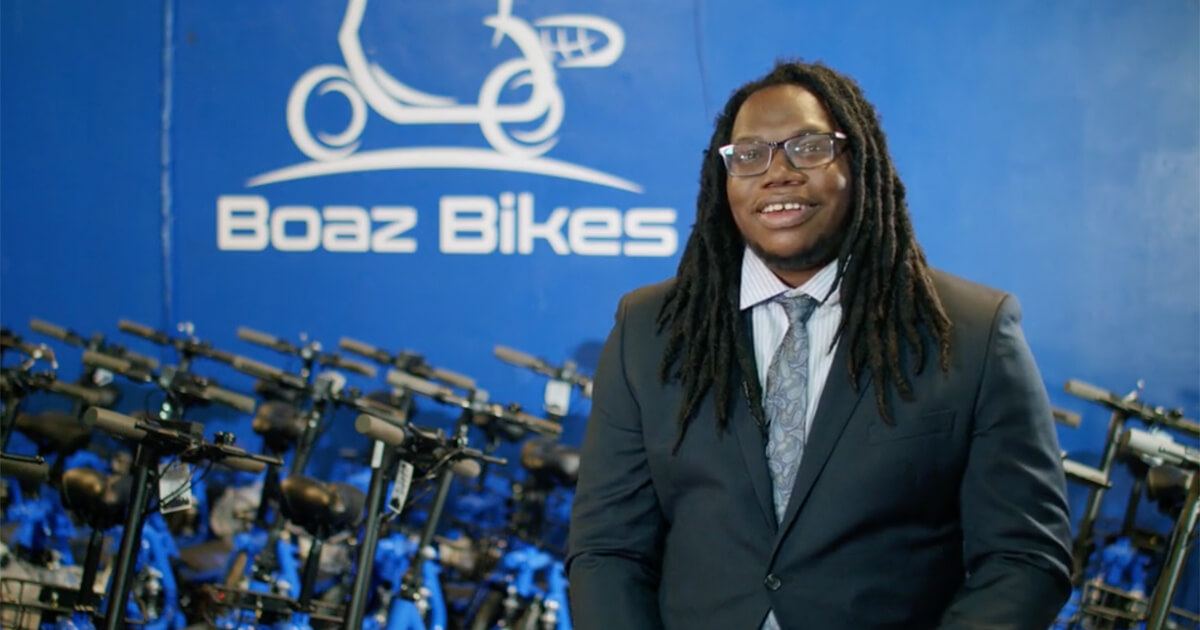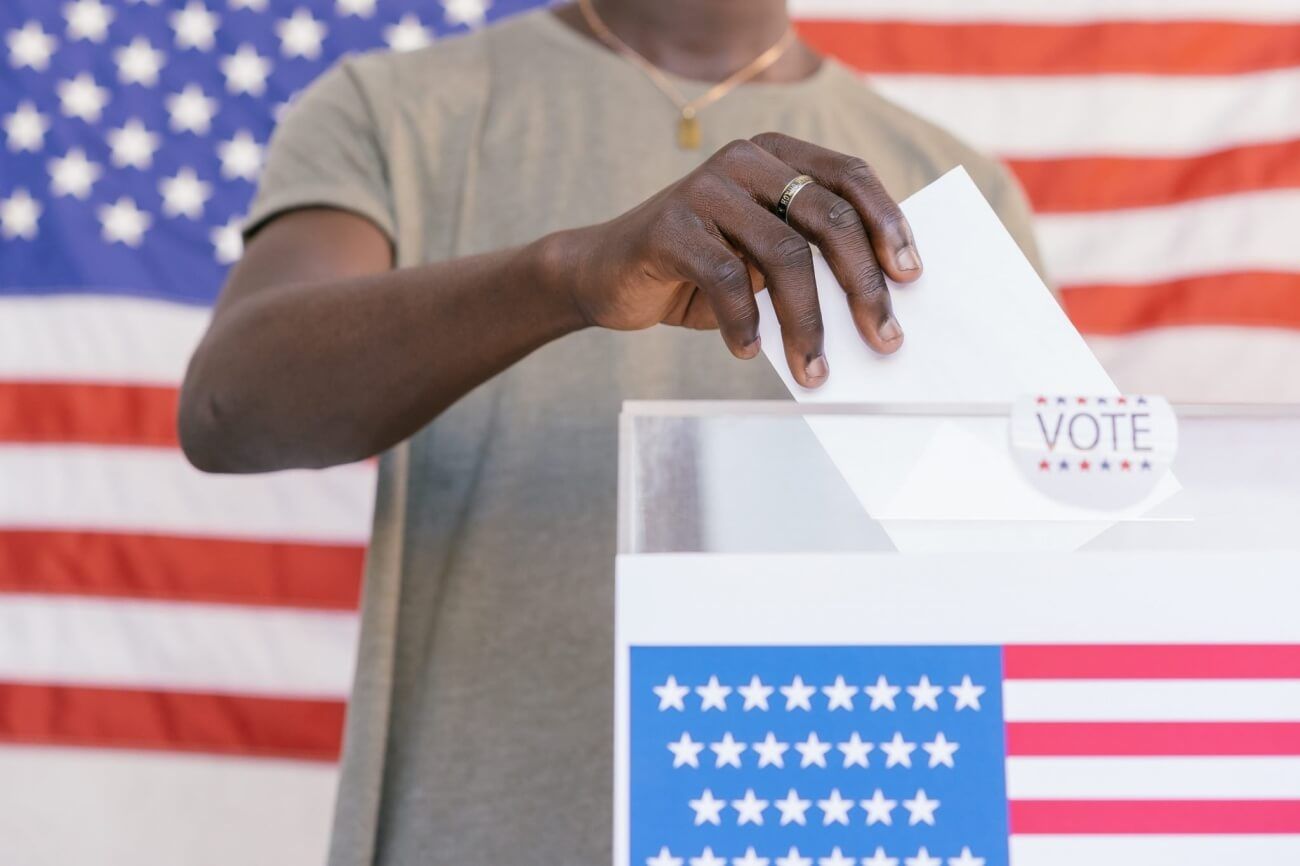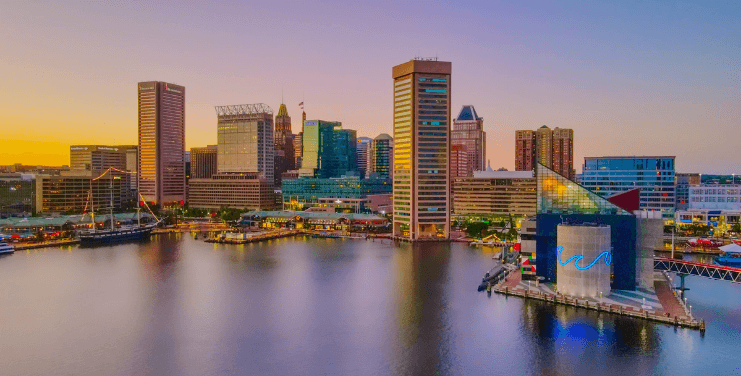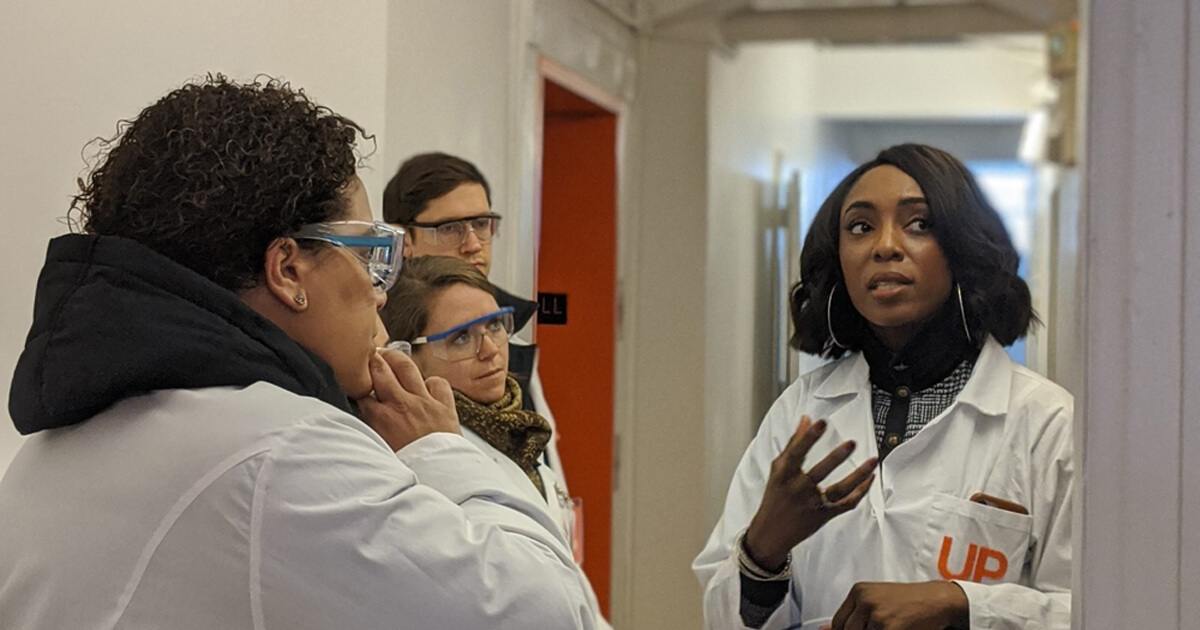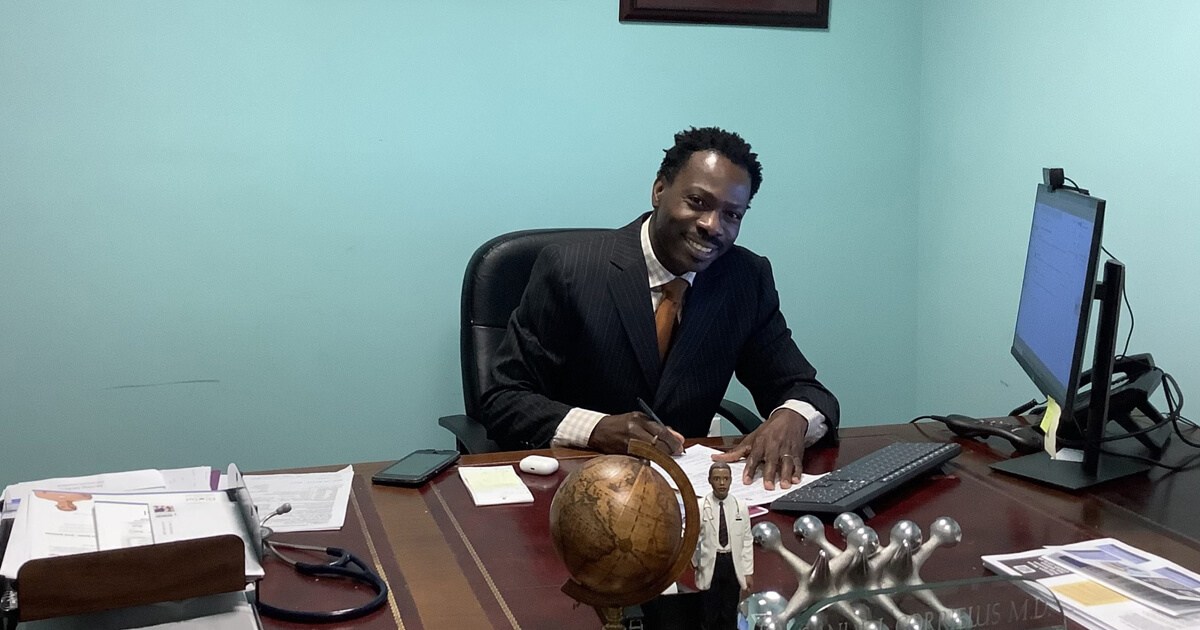The ubiquitousness of shared ride bicycle and scooter services have ceased to be a novelty. Boaz Bikes joins competitors but is unique, not only as a Black-led and woman co-founded startup, but in its emphasis on safety and in its ability to pivot to accommodate the ongoing COVID-19 pandemic, according to CEO Emil Nnani.
“COVID kind of helped us because it made all of our competitors pull out of the city and some went bankrupt. We’re not so high up in the board rooms that we don’t know what’s going on. We’re on the ground and we see what’s going on; we see what the people want and we’re able to make those changes on pivot,” Nnani told The Plug.
Boaz Bikes presently operates out of Detroit, averaging 300 to 400 rides a day with more than 50,000 total rides. At one time, Boaz Bikes also operated in Atlanta; however, the city requested a halt in the service with the onset of COVID-19.
The company also paused operations in Detroit for three months, using that time to retool its operations to maximize safety, including sanitizing each scooter daily and installing hand sanitizers on every vehicle. The procedures put in place to accommodate the pandemic have put the company in a better position to handle similar situations in the future, according to Nnani.
“[Detroit] was the only city that allowed scooters to be an essential business because people still needed to get around with public transportation,” Nnani said.
Unlike motorized stand-up scooters, Boaz Bikes have seats, along with a wider foot deck that allows riders’ feet to be side-by-side rather than one behind the other. The bikes also have larger tires to better negotiate uneven pavement, rear-mounted baskets, turn signals and side mirrors. These features contribute to an average of only three accidents per 100,000 rides for Boaz Bikes, versus an average of 19 accidents per 100,000 rides for stand-up scooters.
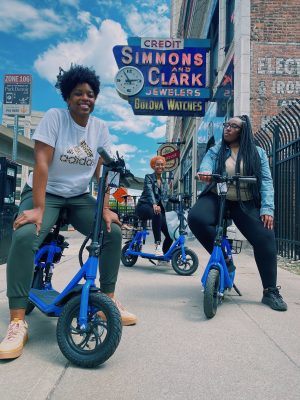
Swappable batteries mean that vehicles are able to remain in the field longer. The bikes in the fleet are custom-designed by an international manufacturer. There is a patent-pending on the next-generation Model 3 scooters.
Boaz Bike, LLC was registered in Texas in 2018. In February 2021, the company was renamed Boaz Bikes, Inc., converting to C-corporation status in the state of Delaware. Along with Nnani, CFO Cory Smith and COO Christiana Winfrey serve on the board of directors. Other top-level officers include CTO Timothy Holmgren, CMO Shauna Armitage, VP of Operations Rofeal Daniels and Advisor David Valaer.
Boaz Bikes was named to conform with what Nnani called a convention for four-letter names in the shared-ride space, citing Lyft, Uber and Lyme. However, the name also reflects the company’s commitment to its faith-based mission statement.
“Boaz is a character in the Bible who had great integrity. A very strong, wealthy, great character. And I just felt like that was everything that a company should stand for,” Nnani said.
Facing frustration in its attempts to acquire funding through traditional venture capital channels, Boaz Bikes turned to equity crowdfunding, raising more than $1 million. The successful equity crowdfunding campaign has made it easier to obtain additional financial support, although gaining access to the inner VC circle remains a challenge, Nnani said.
“Especially the VC world, a lot of that is built on a network. If you don’t come from that pedigree, you’re not really in that network,” Nnani said. “You don’t have those relationships that you can call somebody up and say, hey, this company needs a $20 million check, even though we’re doing everything right. Everything looks right on paper,” he continued. “So, we can scale this to other markets. But getting in the room and to the right people is the challenge.”
In addition to Detroit, Boaz Bikes presently operates in Austin, Texas, with plans to expand to Los Angeles in September. An application to provide shared ride services to Chicago was unsuccessful, although Nnani isn’t giving up on the Windy City.
“I would love to get out to Chicago. We applied for Chicago and we didn’t receive the permit,” he said. He plans to reapply. “In VC terms, our aim is to make this a unicorn, which is a billion-dollar startup. And I think we can do it. Our goal for 2022 is to be in at least 60 markets by the end of next year,” Nnani said.

